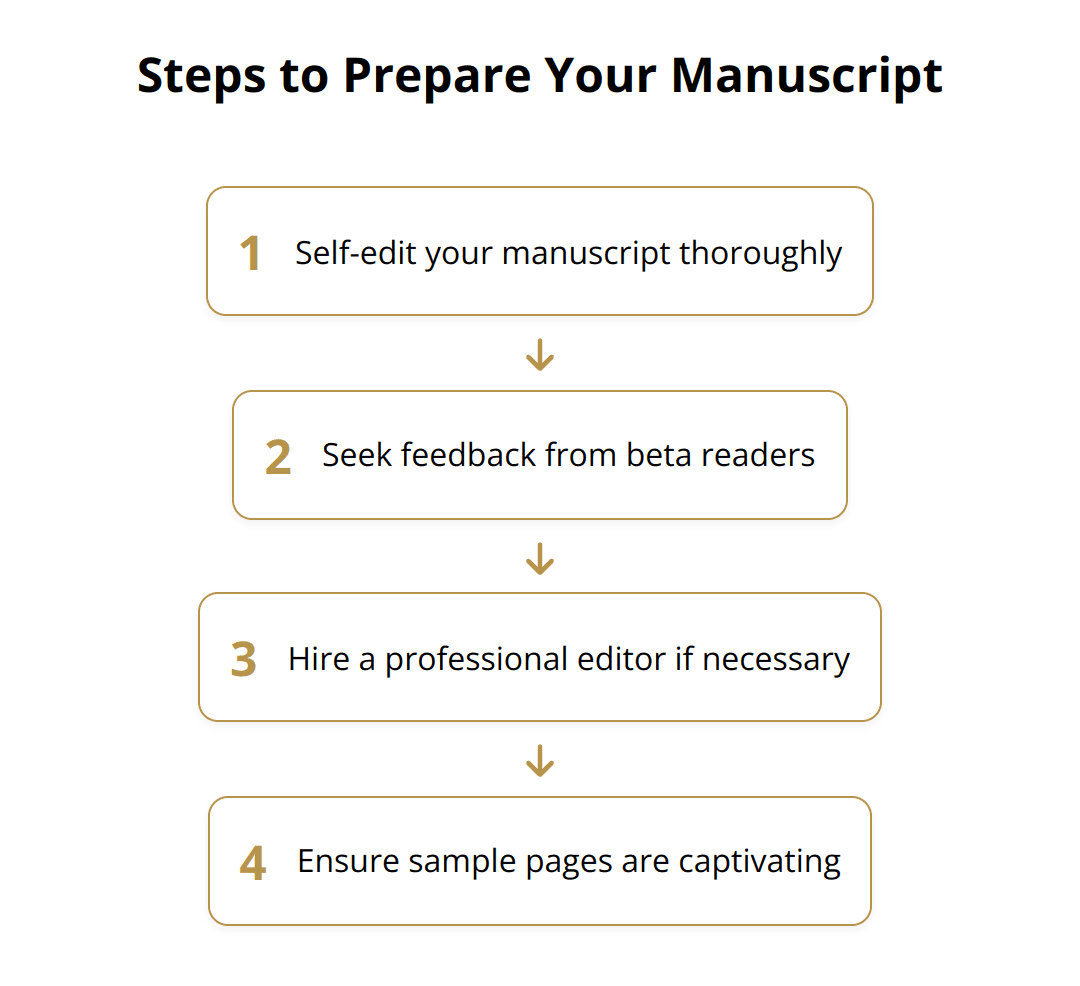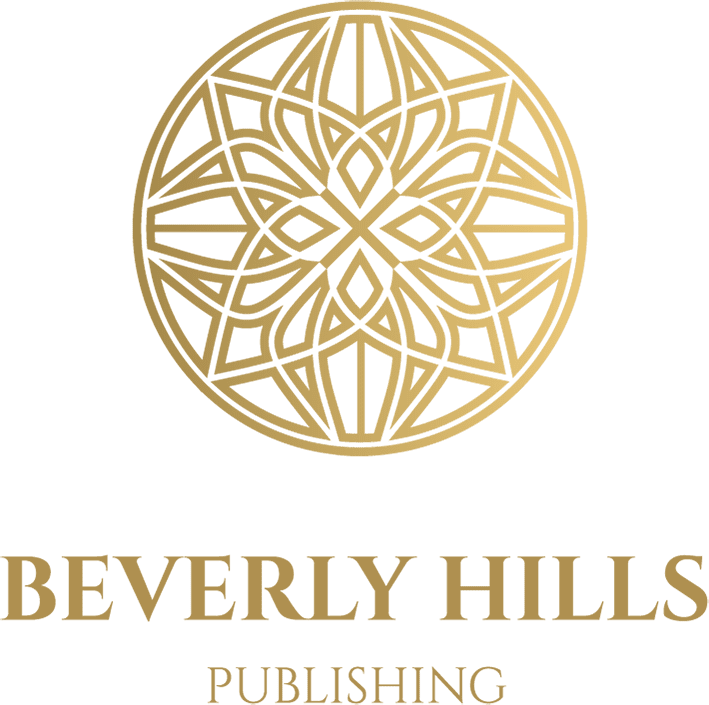Securing a literary agent is a critical step for any serious author looking to navigate the publishing world.
At Beverly Hills Publishing, we know how essential it is to find the right professional to champion your work.
In this guide, we provide practical tips and actionable steps to help you connect with the perfect literary agent for your needs.
Let’s get started on your journey to being represented.
What Do Literary Agents Do?
Literary agents play a pivotal role in an author’s career by acting as the bridge between writers and publishers. Their primary responsibility is to sell your manuscript to publishing houses. But their tasks go far beyond this. Agents often provide manuscript editing, market insights, and contract negotiations.
An agent will leverage their industry connections to get your book into the hands of the right editors. They know which publishers are looking for specific genres and subjects, making them invaluable for navigating the complex world of publishing.
Why Literary Agents Are Important
Literary agents aren’t just middlemen; they bring value by shaping and refining your work. According to Publisher’s Marketplace, approximately 75% of books acquired by major publishers come through agents.

Here are some crucial reasons why agents matter:
-
Access to Top Publishers: Agents have established relationships with major publishing houses like Penguin Random House and HarperCollins.
-
Contract Expertise: Publishing contracts can be complicated. Agents have the legal know-how to secure the best terms for you.
-
Market Knowledge: Agents are in tune with current market trends, ensuring your book has the best chance of success.
-
Continued Career Support: Good agents are invested in your long-term success, aiming to help you build a lasting career.
Literary Agents vs. Publishers
Understanding the difference between literary agents and publishers is essential. While agents help polish and sell your manuscript, publishers are responsible for producing and distributing your book.
The critical differences include:
-
Role: Agents serve as your representative, while publishers take on production, marketing, and distribution.
-
Payment: Agents usually take a 15% commission on what you earn from a publishing deal. Publishers pay you advances and royalties.
-
Engagement: You work closely with your agent on manuscript improvements and pitches, while the publisher collaborates with you on editing, cover design, and marketing.

Working with a literary agent can significantly enhance your chances of success in the publishing world. Understanding their role and how they differ from publishers equips you with the knowledge needed to choose the right professional help for your writing career.
For more detailed advice on related topics, you might find our guide on how to acquire book reviews effectively quite useful.
How to Find the Right Literary Agent
Finding the right literary agent is fundamental to your success as an author. There are several key steps that will help you navigate this important decision.
Researching Agents Thoroughly
Research is key when scouting for a literary agent. Look for agents who specialize in your genre. Use resources such as the Association of Authors’ Representatives (AAR) and Publishers Marketplace to get a list of potential agents. Pay attention to agents who have represented authors similar to you. Don’t just rely on their website; check their recent deals and sales.
- Tool Tip: Use QueryTracker to keep track of your submissions and responses.

Evaluating Track Records
Evaluating an agent’s track record can give you an insight into their success and reliability. Examine their portfolio, looking at the authors they represent and the publishing houses they’ve secured deals with. You can also find reviews and testimonials from their authors to gauge satisfaction levels. An agent who consistently closes deals with major publishers is generally a safe bet.
- Statistic: According to a 2020 survey by Publishers Marketplace, top agents secure deals for their authors within six months on average.
Watch for Red Flags
While many agents are reputable, there are some red flags to watch for. Be wary of agents who charge upfront fees. A legitimate agent earns their commission after selling your book. Also, avoid those who guarantee publication or have no verifiable track record. Trust your gut; if something seems off, it probably is.

- Pro Tip: Check forums and writer communities like Absolute Write and Writers Beware for agent reviews and warnings.
Finding the right literary agent takes time and effort, but it’s worth it. By thoroughly researching, evaluating track records, and watching for red flags, you can find a partner who will genuinely champion your work.
For more insights into optimizing your book’s visibility, you might find our tips on effective book marketing useful.
How Do You Secure a Literary Agent?
Crafting a Query Letter
A compelling query letter is vital for grabbing an agent’s attention. Your query should be concise and engaging, encapsulating the essence of your book in a few paragraphs. Begin with a powerful hook, followed by a brief synopsis of your manuscript, and then share pertinent details about yourself and your writing experience.
Include the word count and genre of your book. Personalize each letter by referring to the agent’s recent sales or interests.
-
Agents receive hundreds of queries monthly. A well-crafted, personalized letter stands out.
-
Keep your query letter to a single page, around 300 words.
Preparing Your Manuscript
Before submitting, make sure your manuscript is polished to perfection. This means not just relying on self-edits but also seeking feedback from beta readers and possibly hiring a professional editor. Many agents will request sample pages, so the first three chapters should be impeccably written and captivating.
-
Only 1 in 3 manuscripts on submission get acquired by a publisher, so ensure yours is highly refined.
-
Utilize formatting guidelines typical for your genre. Double-space, 12-point font, and clear, readable fonts like Times New Roman make for a professional submission.

Following Up and Handling Responses
After you’ve sent out your queries, patience and organization become essential. Track which agents you have queried and their responses. This not only keeps you organized but also helps you refine your approach if the responses aren’t favorable.
-
Use tools like QueryTracker to keep tabs on your submissions.
-
A standard follow-up time is around six to eight weeks if you have not heard back. This shows persistence without being pushy.
If an agent requests a partial or full manuscript, respond promptly and professionally. If you receive multiple offers, consider the agent’s track record, enthusiasm for your project, and mutual compatibility before making a decision.
-
Respond to manuscript requests within 24-48 hours to show your professionalism.
-
According to Publishers Marketplace, top agents can secure deals within six months on average.
For additional insights into effective strategies on book marketing, you may find our guide on effective book marketing strategies useful.
By following these steps meticulously, authors increase their chances of finding the right literary agent to propel their careers forward.
Wrapping Up
Securing a literary agent can be a game-changer for any author aiming to succeed in the publishing industry. Our guide has provided practical tips, from understanding the role of literary agents to crafting compelling queries and tracking submissions. To summarize:
![Key Takeaways - Literary Agent Acquisition Tips [Guide]](https://b3004418.smushcdn.com/3004418/wp-content/uploads/2024/05/Literary_Agent_Acquisition_Tips__Guide__6_2024_05_27_07_33_53_885878_00_00.png?lossy=1&strip=1&webp=1)
-
Agents provide manuscript editing, market insights, and contract negotiations.
-
Approximately 75% of books acquired by major publishers come through agents.
-
Use tools like QueryTracker and resources like Publishers Marketplace to research and track agents.
-
Ensure your manuscript is polished and query letters are personalized.
Finding the right agent involves careful research and evaluation. Look for agents with a proven track record in your genre, and be vigilant about potential red flags. Craft a captivating query letter and prepare your manuscript meticulously to stand out.
Securing a literary agent isn’t just about landing a book deal; it’s about finding a partner who will champion your career. From ongoing market knowledge to contract expertise, a good agent brings significant value.
We at Beverly Hills Publishing empower authors through innovative publishing, branding, and marketing strategies. This holistic approach helps authors build strong personal and professional brands. Learn more about how we can help you achieve your publishing goals at Beverly Hills Publishing.
Authors, take action today. The journey to finding the right literary agent is challenging but incredibly rewarding. Equip yourself with the right tools, stay persistent, and your efforts will pay off.















































































































































































































































